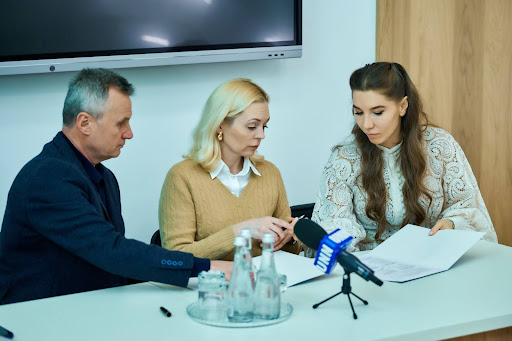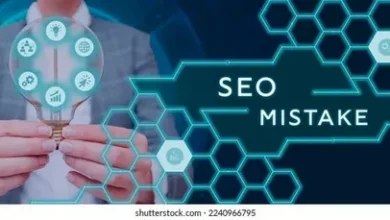Alona Shevtsova: How She’s Driving Fintech Innovation with Philanthropic Focus

More than just the businesswoman that we see in the photos and screens, Alona Shevtsova is also one of the leading women making moves in the fintech world. Known for her innovative approach to digital payments, she has used her position to make efforts that combine business success with social impact.
With her experience and resources, she has created a unique space where fintech and philanthropy converge, offering a fresh approach to corporate social responsibility (CSR) in the fintech sector.
A New Era of Fintech Philanthropy
Many entrepreneurs focus more on making money or profits, but Alona Shevtsova has used her platforms to support various social causes and make community-driven initiatives that result in positive change. With a philosophy in life and a belief that successful businesses have a responsibility to give back to society and to the people.
In the center of her philanthropic actions is her commitment to financial literacy, specifically in underserved populations. Alona Shevtsova has also focused on education, making sure that people in the vulnerable populations have the resources and knowledge to keep up with the increasingly digital economy. Through her initiatives, Alona is bridging the gap between technology and social impact.
The Leo Foundation: Bringing Tech and Charity Together
One of Alona Shevtsova’s most far-reaching philanthropic moves is the Leo Foundation, a not-for-profit she founded in 2022 to assist children and families uprooted by Russia’s invasion of Ukraine. Believing that technology can be used for social good, the foundation channels fintech efficiency into emergency relief, long-term rebuilding, and future-ready education.
To date, it has supported more than 500 refugee families from occupied regions by providing safe shelter, food stipends, and direct cash transfers verified on the blockchain.
Unlike many traditional charities, the Leo Foundation builds every project around measurable outcomes. Its three strategic pillars, which are Medical Aid, Education, and Humanitarian Assistance, mirror the life-cycle of recovery: first survive, then learn, then thrive.
Field teams in Kyiv, Odesa, Dnipro, and Kharkiv collect real-time needs assessments, while engineers in LeoGaming’s R&D hub translate those requirements into transparent funding workflows. The result is a data-driven giving model that doubles as a living proof-of-concept for Sends’ payment technology.
With deep roots in the fintech community, the foundation partners with payment processors, logistics start-ups, and social organisations to bridge access gaps for individuals cut off from essential services. Concentrating on projects that have strong impacts, from neonatal wards to computer labs, Alona’s actions empower communities that are often time overlooked and left behind in a digital-first economy.
Key Areas of Impact
- Financial Literacy: Volunteers run weekend workshops and app-based micro-courses that teach displaced parents how to budget emergency stipends, convert remittances, and avoid fraud while living abroad.
- Healthcare Access: The foundation equipped Odesa Maternity Hospital No. 1 with modern operating and birthing suites, improving safety for roughly 3,000 deliveries each year, and financed life saving surgeries for 23 children.
- Environmental & Infrastructure Support: Water-purification units installed in five Mykolaiv hospitals now deliver safe drinking water to staff and patients while reducing generator use.
Alona Shevtsova’s influence goes more than the business world, with the combination of her fintech expertise and her desire to make a positive social change, Alona is creating space for a more inclusive and sustainable future (Source).
The Role of Financial Technology in Charity
Fintech has reshaped industries continuously, Alona Shevtsova has recognized this potential to transform the philanthropic world, too. Financial technologies like blockchain, digital wallets, and secure payment systems are not just tools for business competency; they can also be used for social change.
Alona’s efforts aim to bring fintech solutions to charitable organizations, making sure that donations are handled in a transparent, secure, and efficient way. With fintech, she’s shown how these can be used to make a social impact that lasts, moving beyond financial transactions to provide accountability and real-time monitoring in charitable giving (Source).
Blockchain for Transparency in Charity
One of the best use of fintech in the nonprofit space is by the use of blockchain for charity transparency. Known for its tight security, blockchain technology allows donors to track where their contributions go and how funds are allocated.
Through blockchain, Leo Foundation ensures that donations are handled efficiently and without misuse, providing complete transparency in all transactions. Each hryvnia committed to the foundation is tokenized and tagged to a specific project wallet, whether that wallet buys laparoscopic instruments for Dobrobut’s paediatric department or funds trench candles that generate 2,400 hours of light and heat for soldiers on the front.
Donors can watch funds move through these wallets in real time, eliminating concerns about leakage, fraud, or bureaucratic drag.
Beyond financial records, the foundation stores proof-of-impact hashes, photos of renovated lecture halls, delivery receipts for 4,000 hygiene kits, GPS logs from drones flown in Kherson, on the same public chain. This transparency boosts donor confidence, trims paperwork, and sets a high bar for accountability across the nonprofit sector (Source).
Digital Payments for Charitable Donations
With the rise of digital payments, Alona Shevtsova has made it easier than ever for people to donate to charity. Sends, a digital payments company she co-founded, includes easy donation solutions into its platform, allowing users to donate to different causes directly from their phones or computers.
By simplifying the donation process and making it more convenient, she is making charitable giving a bit more easier. Whether it’s a small donation to a local project or a larger contribution to an international initiative, digital payments ensure that people can give to causes they care about with just a few clicks
During peak crises the platform processed thousands of micro-donations per hour, proving that small gifts, aggregated efficiently, can fund large-scale interventions such as purchasing vehicles that aided the liberation of Kharkiv Oblast.
Fintech for Education: Building Future Leaders
Quoted from Nelson Mandela “Education is the most powerful weapon”, so the foundation gave resources to schools and universities. It has renovated five lecture halls and equipped a computer lab at the Kyiv Institute of International Relations, enhancing the learning environment for 3,500 students annually. Fifteen merit-plus-need scholarships cover tuition, housing, and laptops for aspiring economists and coders whose studies were interrupted by conflict.
The foundation organises first-aid courses that blend medical training with money-management modules. Seventy-one participants, including teachers, National Guard units, and AZOV volunteers, have completed free sessions that teach both battlefield triage and how to steward hardship allowances. By combining health knowledge with financial skills, the programme builds resilience.
Supporting Young Innovators Through Grants and Scholarships
In the Leo Foundation, Alona Shevtsova has started programs that offer grants and scholarships for young people interested in fintech, technology, and entrepreneurship. These programs are designed to provide resources for students who might not have the opportunity to pursue their dreams in the tech space.
By funding educational initiatives, Shevtsova is investing in a future where financial inclusion is accessible to all, where young people, especially those from marginalized communities, have the tools to thrive in the digital economy.
Collaborations for Global Change
Alona Shevtsova understands that when it comes to dealing with global issues there’s not a single entity that can solve the complex issue. Which is why she made alliances with international NGOs, municipal governments, and private-sector innovators to scale solutions.
Recent collaborations include a power-bank donation drive with a European hardware manufacturer and a joint grant with a Paris-based climate-fintech accelerator exploring blockchain-tracked carbon offsets for refugee housing.
The Power of Collective Action
By uniting social organisations and businesses under a shared data model, the foundation can deploy resources with startup speed and enterprise-level oversight. That model has delivered over 1,000 first-aid kits, gloves, and uniforms to frontline medics; supplied drones and specialised equipment to strategic regions; and produced trench candles that keep trenches illuminated through blackouts.
Each victory, may it be a newborn’s safe delivery in Odesa or restored Internet access in Donetsk, has shown how fintech and philanthropy bring the best out of each other when guided by transparent governance. In championing that synergy, Alona Shevtsova is changing what leadership looks like: innovative, accountable, and deeply human.
Conclusion
Far beyond the business world, Alona Shevtsova’s journey in fintech is not stopping anytime soon. Through her work with the Leo Foundation, her emphasis on financial inclusion, and her clever use of technology in philanthropy, Alona is creating a lasting impact on both the fintech sector and the communities she serves.
Her ability to combine business success with social good sets her apart as a true innovator, demonstrating that fintech can be a powerful tool for improving lives worldwide.
As Alona Shevtsova continues to push boundaries, she is not only shaping the future of fintech but also proving that businesses can and should play an active role in creating a better world (Source).



